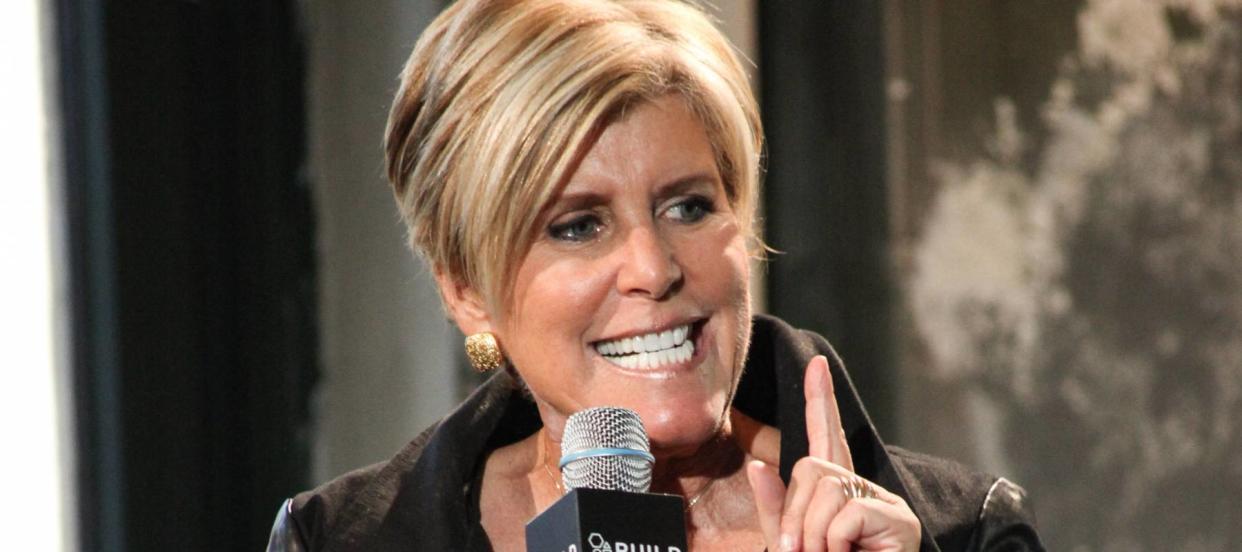Suze Orman calls this investment advice the 'most overlooked financial tip'

Personal finance pooh-bah Suze Orman has thrust herself into the headlines by advising consumers to "stay away" from traditional IRAs and 401(k) retirement plans.
The TV personality and best-selling author said in a Pivot podcast that when you withdraw the money in retirement, the taxes are bound to be high because the government will have to find a way to pay for its massive coronavirus debt. She recommends going with a Roth IRA or Roth 401(k), which offer tax-free withdrawals.
It's a stunning piece of advice — but is that what Orman recently referred to as "the most overlooked financial tip"?
Not even close.
Is it the guidance she's been giving investors to keep buying stocks when the market tanks, because you get shares of great companies at cheap prices? (As stocks started sliding in late February, Orman said people should "rejoice.")
Nope, it's not that either.
So what is this tip that many people miss?

Orman says there's one important investment that beats all of the others.
It allows you to make smarter financial decisions. It helps you cut your health care costs and save money on life insurance.
It keeps us "focused on the work we have, or the new job we now need," Orman writes, in a blog post titled "The Most Overlooked Financial Tip."
When it comes time to buy disability insurance to protect your income in case you're ever seriously ill or injured, the tip can help you save on that, too.
It gives you energy to take your work to a new level and work longer "if that's a priority," the financial guru says.
So what is this key to success that many people leave in the drawer? It has become particularly important during the pandemic.
"I can think of no better investment in your current and future self than to take better care of you," Suze Orman says. "That starts with sleep. And making sure you connect to friends and loved ones just to chat and be connected."
The link between health and financial security

Orman says people often don't think about the important connection between their emotional and physical health and their financial health.
"When you are stressed in life, and especially if you are stressed about money, that’s going to take a toll on you," she says.
In a recent survey by the Census Bureau, nearly half of U.S. adults said either they or someone in their household had lost income because of the COVID-19 crisis. And about a third reported symptoms of serious anxiety or depression.
"For those of you struggling with maintaining a positive outlook during this very unsettling time, please don’t hesitate to seek out professional help," says Orman. "And don’t you dare be embarrassed."
She says reach out to friends for leads on where to find help, and try to get more exercise and eat healthier. Because when you pay more attention to your mind and body today, there's a long-term payoff — in retirement. You'll need to be in excellent financial shape when you retire, and good physical shape, too.
"Taking better care of you today ups the odds that you will enter retirement in better health. That’s going to be worth so much, as a healthier you can make the most of enjoying retirement," Orman says, in the blog.

